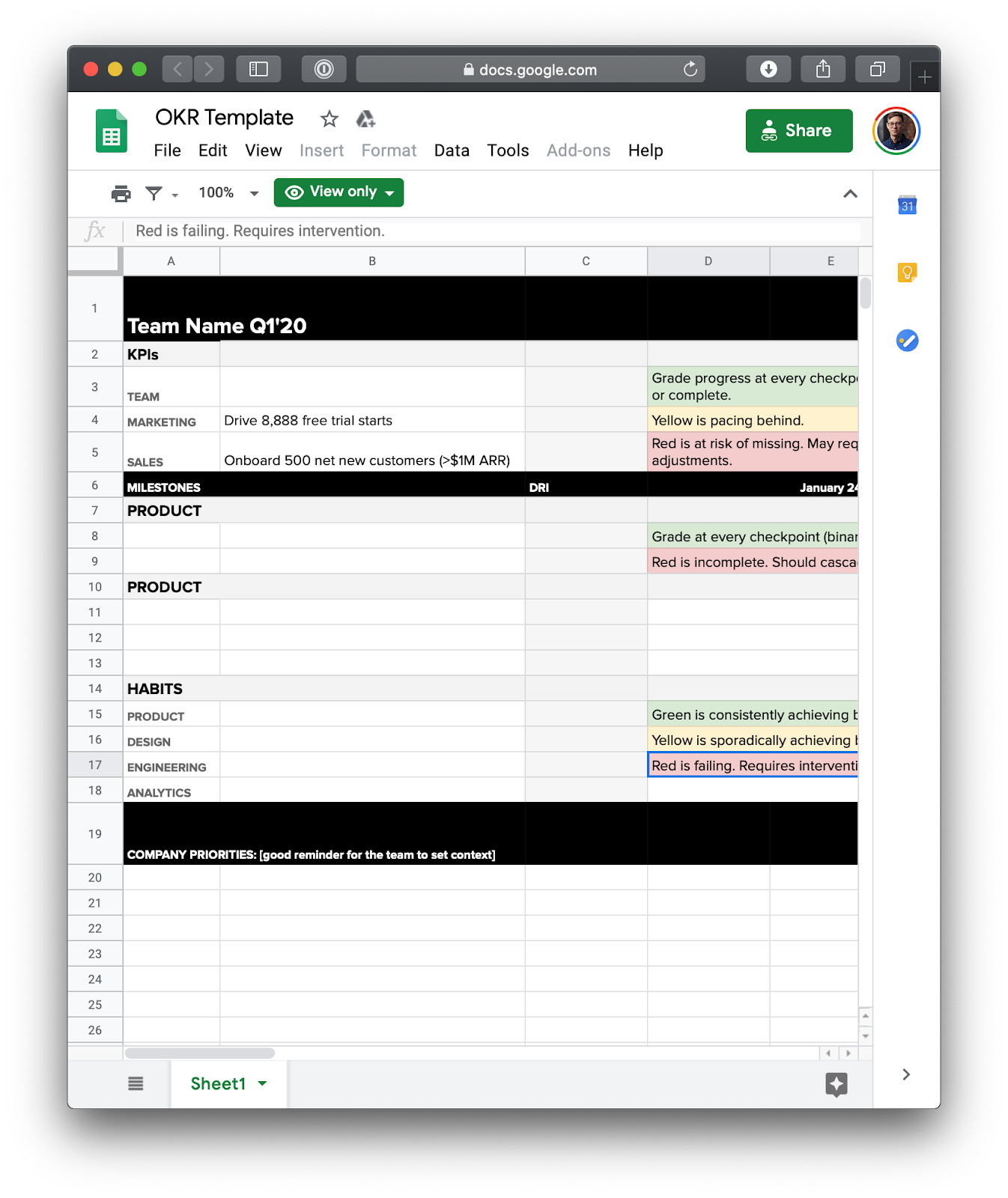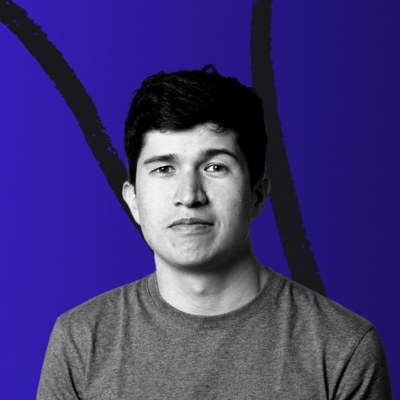
You have to get good before you get better
Two Shorts: Get good then get better, Kevin Yien's OKR template
April 16, 2020 · Updated February 1, 2026
1
Here’s something I’ve been thinking about lately: the way you become great at something is different from the way you get good at it.
When I was a freshman in college I began to get good at building things by focusing on process. A few friends and I did one hack project every weekend. We picked anything we could build and ship in a weekend.
Most of the stuff we built didn’t work. But we learned a ton. And we did build one thing that went viral.
By the time I was a sophomore, I was pretty good. But I wanted to get better. So my goal setting shifted. When I started the company that would eventually become Firefly the clear goal, from day one, wasn’t to ship something — it was to be profitable. We even named the corporation Profeatable, as in, “enough profit to eat.” And we achieved it about a year after we started.
I followed the same process with Superorganizers. My first goal with this newsletter was to ship one interview. It wasn’t big and grand. It was one measly post.
When that was done I set another process goal: I decided I was going to ship 1 new interview every week for the next 25 weeks.
Now I’m good at writing Superorganizers. So my goals are different, too. I have a very clear growth rate, and revenue goal in mind for what I want to achieve with this newsletter.
So what gives? Why the shift?
Before you’re good, outcome goals are useless.
If I had started Superorganizers by saying, “I want this to make $5,000 a month,” it would have turned into a psychological disaster. My inner critic would’ve started screaming as soon as I wrote the first sentence of the first post:
This isn’t any good. Who is going to pay for this? This is too boring. No one wants to read this.
And I probably would’ve never finished that first post.
But I didn’t do that. I set a process-driven goal. That meant that the quality didn’t matter, and the results didn’t matter either. All I had to do was spend the time to ship one post. And when it was done, that was all I was measuring.
Things changed once I got good. Once I established a consistent process for Superorganizers, I started to worry about outcomes. I set revenue targets. I set growth targets. And I came up with plans to achieve them.
All of these things would’ve held me back at first. But, now that I have a consistent process, they’re throwing fuel on the fire.
Once you have the process down, driving for specific outcomes helps push you out of your comfort zone to achieve things you wouldn’t have otherwise.
Process goals make you good. Outcome goals make you better.
You have to get good before you get better.
2
Remember Kevin Yien from yesterday's interview? One thing I didn't get to mention is that he's amazing at is getting the most from his team at Square. And there's a specific tool he uses to do that: an OKR template. He agreed to let me share it with you.
OKR stands for Objectives and Key Results — and he uses this template to set goals and measure his team’s progress towards them.
This template helps you track KPIs, Milestones, and Habits.
KPIs are outputs — like the outcome-based goals we talked about above — they’re measurable evidence of progress like DAUs or net new customers.
Milestones are inputs — like process-based goals —they can be anything from launching a specific feature, to running a certain number of experiments, to testing the product with a certain number of beta users.
The template also has a Habits section — these are also akin to process-based goals. They are behaviors that you want to keep your team accountable to. For example, in Kevin’s case some of the engineers on his team asked to go on customer interviews with the product team. So Kevin established a habit in this OKR tracker to make sure that there was at least one engineer going on-site to a customer each week.
My take: You don’t need to be a team lead to use this OKR tracker. You can use this to keep track of personal projects too.
Did you like this?
Please train my “neural net” and click the red “Like & Comment” button at the bottom!
(This is no vanity exercise—the only purpose it serves is to create a feedback loop for me, so I can make Superorganizers better for you!)
The Only Subscription
You Need to
Stay at the
Edge of AI
The essential toolkit for those shaping the future
"This might be the best value you
can get from an AI subscription."
- Jay S.
Join 100,000+ leaders, builders, and innovators

Email address
Already have an account? Sign in
What is included in a subscription?
Daily insights from AI pioneers + early access to powerful AI tools











Comments
Don't have an account? Sign up!